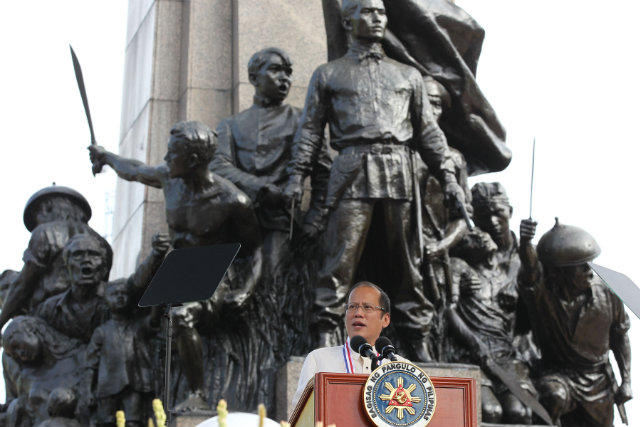SUMMARY
This is AI generated summarization, which may have errors. For context, always refer to the full article.

MANILA, Philippines (UPDATED) – Rising two notches, the Philippines’ ranking improved in a global corruption survey at a time when Philippine politicians faced the worst corruption scandal in recent history.
The country rose 11 spots from 105th in 2012 to 94th this year out of 177 countries and territories, in the Corruption Perceptions Index for 2013 that was released Tuesday, December 3. The Philippines also scored 36, a rise from its rating of 34 the previous year. (READ: Corruption: How does the PH fare?)
In 2012, the Philippines jumped 24 spots from 129 in 2011 to 105.
Transparency International, which published the list, said the Corruption Perceptions Index “ranks countries and territories based on how corrupt their public sector is perceived to be.”
Transparency collates expert views on the problem from bodies such as the World Bank, African Development Bank, Economist Intelligence Unit, Bertelsmann Foundation, Freedom House, and other groups.
It then ranks countries on a scale of 0-100, where 0 means a country’s public sector is considered highly corrupt and 100 means its is regarded as very clean.
In a statement, Malacañang welcomed the improvement saying the rise reflected the Aquino administration’s reforms.
“This year’s improvement continues a trend—in which the reforms put in place result in an increasingly positive and encouraging perception of the country, where improvements are measured not only year-by-year, but by leaps and bounds on an annual basis,” it said.
“This improvement is also a measure of the continued confidence of the international community in the Philippines, and likewise contributes to the virtuous cycle of empowerment as Filipinos from all walks of life work together to accomplish permanent change in the country.”
The Philippines’ better performance came amid protests over the pork barrel, discretionary funds that became a source of corruption.
No less than an Aquino ally, Customs Commissioner Rozzano Rufino Biazon, was implicated in the scam. Biazon resigned on Monday, December 2, 3 days after the justice department included him in a graft complaint filed with the Ombudsman. (READ: Ruffy Biazon resigns as Customs chief.)
The scam involves involves lawmakers endorsing discretionary funds to bogus non-governmental organizations of alleged scam mastermind Janet Lim Napoles, in exchange for hefty kickbacks. It has angered millions of Filipinos who have demanded reform.
‘Corruption hurts the poor’
Under the index, Afghanistan, North Korea and Somalia are seen as the world’s most corrupt countries while Denmark and New Zealand are nearly squeaky-clean.
Worldwide, almost 70% of nations are thought to have a “serious problem” with public servants on the take, and none of the 177 countries surveyed this year got a perfect score, said the Berlin-based non-profit group.
Transparency International’s annual list is the most widely used indicator of sleaze in political parties, police, justice systems, and civil services, a scourge which undermines development and the fight against poverty.
“Corruption hurts the poor most,” lead researcher Finn Heinrich told AFP.
“That’s what you see when you look at the countries at the bottom. Within those countries, it’s also poor people who get hurt the most. These countries will never get out of the poverty trap if they don’t tackle corruption.”
Among countries that have slipped the most on the group’s 2013 Corruption Perceptions Index are war-torn Syria as well as Libya and Mali, which have also faced major military conflict in recent years.
“Corruption is very much linked to countries that fall apart, as you see in Libya, Syria, two of the countries that deteriorated the most,” said Heinrich.
“If you look at the bottom of the list, we also have Somalia there. These are not countries where the government is functioning effectively, and people have to take all means in order to get by, to get services, to get food, to survive.”
Huguette Labelle, chair of Transparency, said “all countries still face the threat of corruption at all levels of government, from the issuing of local permits to the enforcement of laws and regulations”.
The group says that because corruption is illegal and secretive, it cannot be meaningfully measured.
The latest survey “paints a worrying picture,” said Transparency. – Paterno Esmaquel II, with reports from Agence France-Presse/Rappler.com
Add a comment
How does this make you feel?
There are no comments yet. Add your comment to start the conversation.